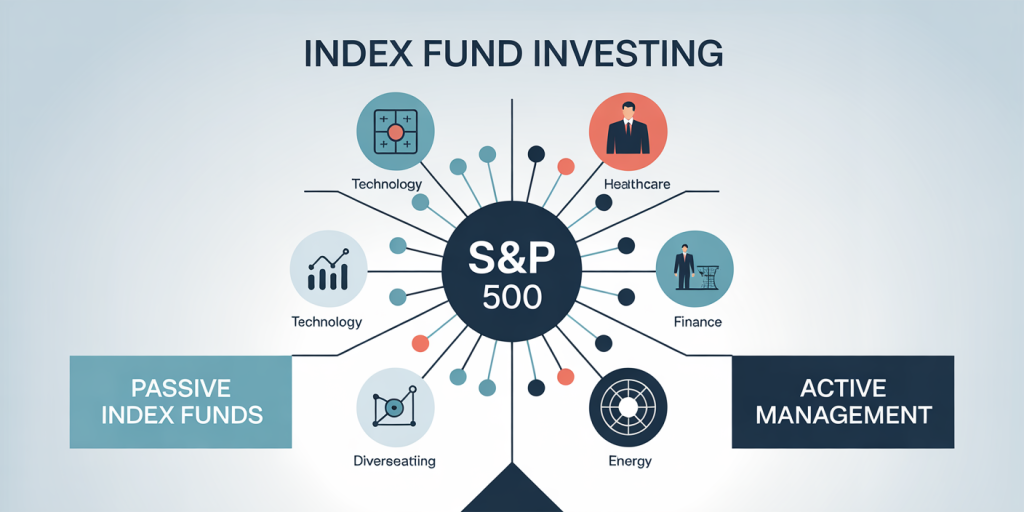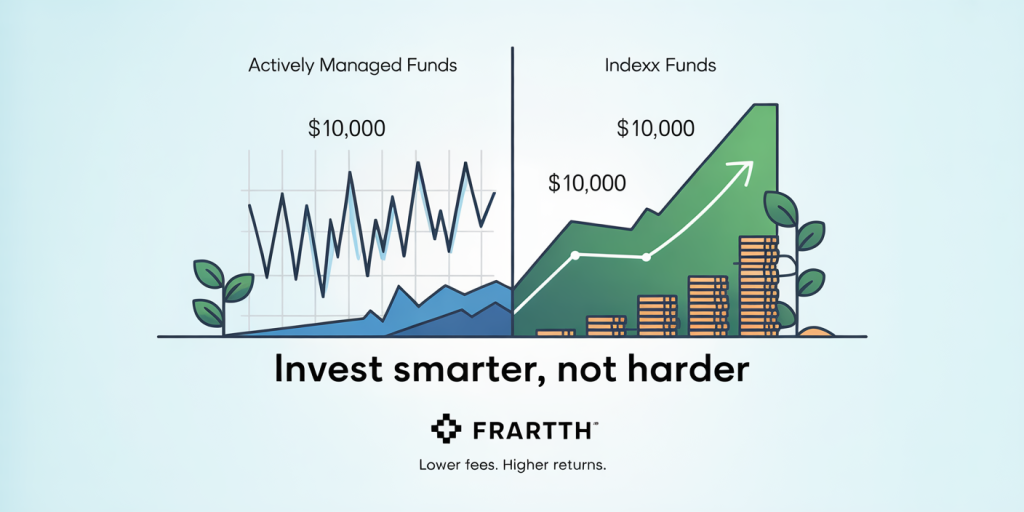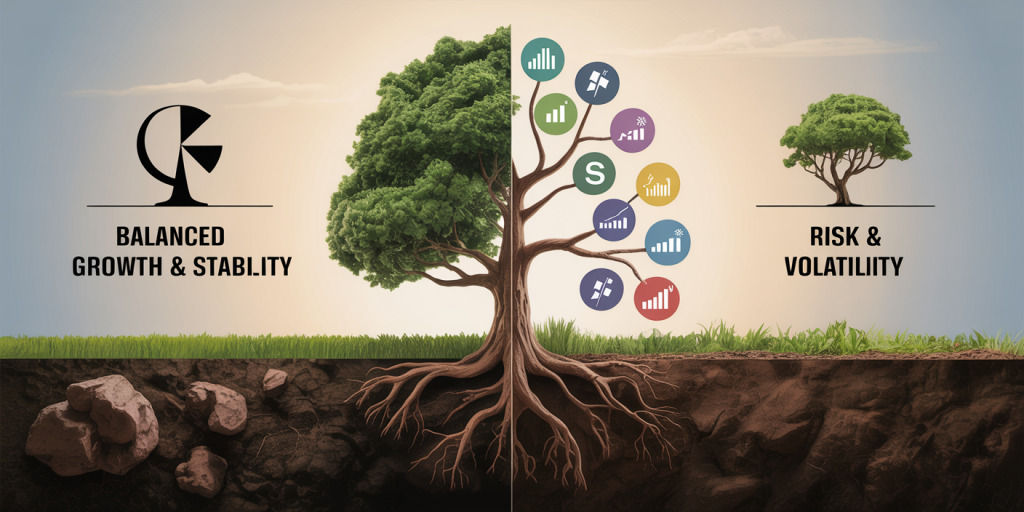Investing in Index Funds: Why It’s a Favorite Among Experts
Investing has evolved over time, with numerous products and strategies emerging to cater to different risk tolerances, goals, and knowledge levels. Out of the various options available, index funds have steadily gained popularity among both retail investors and financial experts alike. Their unique blend of simplicity, cost efficiency, and consistent performance has positioned them as a preferred long-term investment vehicle. In this article, we will delve into the reasons why investing in index funds is favored by experts and how they can benefit a diverse array of investors.
Understanding Index Funds and Their Popularity
Index funds are mutual funds or exchange-traded funds (ETFs) designed to replicate the performance of a specific market index, such as the S&P 500, the Nasdaq-100, or the Dow Jones Industrial Average. Rather than picking individual stocks, these funds hold all (or a representative sample) of the securities in the index, in the same proportions as the index.
This passive investment strategy contrasts with actively managed funds, where fund managers seek to outperform the market through stock selection and timing. According to Morningstar’s 2023 report, approximately 50% of U.S. equity assets were invested in passive funds versus 40% in actively managed funds, highlighting the growing confidence in index funds.
An example is the Vanguard 500 Index Fund (VFIAX), one of the earliest index funds introduced in the 1970s. Its long-term track record showed results closely mirroring the S&P 500, with far lower fees than actively managed funds, which contributed significantly to its popularity.
Anúncios

Cost Efficiency: The Hidden Power of Low Fees
One of the main reasons experts prefer index funds is their remarkably low expense ratios. Active management requires extensive research, frequent trading, and substantial operational costs, which are passed on to investors as higher fees. Index funds, by design, have minimal trading and management, resulting in much lower fees.
Consider the following comparison:
Anúncios
| Fund Type | Average Expense Ratio | Annual Return (10 Years) | Average Turnover Rate |
|---|---|---|---|
| Actively Managed Fund | 0.75% – 1.50% | 8% | 60% |
| Index Fund (e.g., S&P 500) | 0.03% – 0.10% | 9% | 5% |
(Source: Morningstar, 2023)
Lower fees translate directly into higher net returns for investors over time. To illustrate this, a $10,000 investment growing at 9% annually over 20 years results in approximately $56,000. At 8%, it grows to roughly $46,600, a near $10,000 difference attributable largely to management fees and trading expenses.
Renowned investors like Warren Buffett have publicly endorsed index funds—Buffett himself advised in his 2013 letter to shareholders that “most investors, both institutional and individual, will find the best way to own common stocks is through an index fund that charges minimal fees.”
Diversification and Risk Management
Index funds offer instant diversification, exposing investors to a wide variety of companies across sectors and geographies. For example, the S&P 500 index includes 500 of the largest U.S. companies, spanning technology, healthcare, financials, consumer discretionary, industrials, and more. This diversity reduces company-specific risks, unlike investing in individual stocks or narrow sector funds.


Studies from the CFA Institute show that diversified portfolios reduce unsystematic risk and improve risk-adjusted returns. A portfolio centered solely on active funds often suffers from concentration risk or overexposure to volatile sectors. Index funds eliminate such concentrated bets by design.
To put this in perspective, during the 2008 financial crisis, actively managed funds underperformed their benchmarks on average, as fund managers held riskier securities or failed to time the downturn effectively. Meanwhile, broad-based index funds experienced significant declines, but their diversified nature and wide market exposure helped them recover more consistent returns in subsequent years.
Transparency and Simplicity
Another reason experts favor index funds is their transparency. Investors know exactly what they own because the constituent stocks of the index are publicly available and updated regularly. This transparency helps in making informed decisions and better tax planning.
In contrast, actively managed funds may not disclose their holdings frequently, making it challenging for investors to assess risk exposure or overlaps with other investments in their portfolios.
From a simplicity standpoint, index funds eliminate the need for investors to constantly track market trends, analyze individual companies, or attempt to “beat the market.” This hands-off approach suits busy professionals or novice investors who want steady growth without the stress of active decision-making.
For instance, John Bogle, founder of Vanguard Group and a pioneer of index investing, advocated for simplicity and cost control as pillars of investment success. His philosophy underpins why many experts recommend index funds as core holdings in retirement accounts and broad investment portfolios.
Real-World Performance and Case Studies
Historical data shows that, over the long term, index funds frequently outperform the majority of actively managed funds. According to S&P Dow Jones Indices’ SPIVA (S&P Indices Versus Active) U.S. Scorecard, over the 15-year period ending in 2022, nearly 85% of large-cap active funds underperformed the S&P 500 index.
One illuminating case is the performance comparison of the Fidelity Contrafund, a well-known actively managed growth fund, and the Vanguard 500 Index Fund over a decade. While Fidelity Contrafund had some years of outperformance, on average, it delivered annualized returns of about 11.5% (2007–2017), compared to 14.2% for the Vanguard 500 Index Fund.
This performance, combined with lower fees and better tax efficiency, frequently tips the scales in favor of index funds for long-term investors.
Tax Efficiency Benefits
Index funds generally generate fewer capital gains distributions than actively managed funds. Since index funds track the holdings of an index and only rebalance when there is a change in the index composition, they typically have low turnover rates. This low turnover naturally leads to fewer taxable events.
For taxable investment accounts, the impact of capital gains tax can erode post-tax returns significantly. A study by Morningstar in 2022 estimated that active funds distributed taxable gains to investors 30% more often than index funds, making index funds more tax-efficient for long-term wealth accumulation.
As an example, consider a taxable mutual fund account held for 10 years. If the active fund manager sells stocks frequently, investors might face annual capital gains taxes, reducing net gains. Meanwhile, index funds’ minimal trading can defer tax liabilities, allowing the investment to compound more effectively.
Future Perspectives: The Growing Appeal of Index Investing
The future outlook for index funds remains positive due to several converging factors. Firstly, technological advancements have made accessing index funds even easier and more affordable. Robo-advisors like Betterment and Wealthfront primarily use index funds to build diversified portfolios tailored to individual risk profiles, which democratizes investing for the masses.
Moreover, the rise of ESG (Environmental, Social, and Governance) index funds enables investors to align their portfolios with ethical considerations while maintaining the benefits of passive investing. For example, the MSCI KLD 400 Social Index tracks socially responsible companies and has seen inflows exceeding $10 billion in 2023.
Additionally, regulatory changes and increased financial literacy continue to drive institutional and retail adoption of low-cost index funds. Pension funds and sovereign wealth funds are increasingly allocating to broad passive strategies, given the long-term cost advantages.
Nonetheless, experts caution that index funds are not completely risk-free. Market downturns affect all underlying securities, and investors need to maintain a suitable asset allocation aligned with their goals. Moreover, as index funds grow in popularity, some critics raise concerns about concentration risk in mega-cap stocks dominating indices like the S&P 500.
Despite these challenges, the widespread consensus remains that index funds represent an optimal core investment strategy, with the ability to adapt to future economic and technological shifts.
—
In summary, investing in index funds offers investors a combination of cost efficiency, diversification, simplicity, transparency, tax advantages, and proven long-term performance, which explains their favored status among financial experts. Accessible to novice investors yet powerful enough for institutions, index funds have cemented their role as cornerstone components in investment portfolios, driving returns for millions worldwide. As financial markets evolve, index funds will likely continue their ascent, reaffirming their appeal as a smart, evidence-based investment choice.
